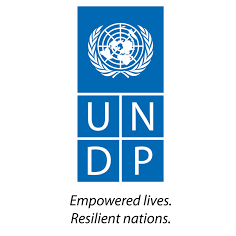The United Nations Volunteers (UNV) programme is the UN organization that promotes volunteerism to support peace and development worldwide. Volunteerism can transform the pace and nature of development and it benefits both society at large and the individual volunteer. UNV contributes to peace and development by advocating for volunteerism globally, encouraging partners to integrate volunteerism into development programming, and mobilizing volunteers.
In most cultures volunteerism is deeply embedded in long-established, ancient traditions of sharing and support within the communities. In this context, UN Volunteers take part in various forms of volunteerism and play a role in development and peace together with co-workers, host agencies and local communities.
In all assignments, UN Volunteers promote volunteerism through their action and conduct. Engaging in volunteer activity can effectively and positively enrich their understanding of local and social realities, as well as create a bridge between themselves and the people in their host community. This will make the time they spend as UN Volunteers even more rewarding and productive.
Background
The project, Preventing and Responding to Violent Extremism in Tanzania is a UNDP-led project, whose main objective is to support a preventive and developmental national effort for preventing and responding to violent extremism.
The indicative outputs of the project are: 1.National policy framework and intervention capacities strengthened to address the phenomenon of violent extremism
2. Improved interaction between security providers and local population in target areas
3.Increased livelihood opportunities for 'at risk' youth in target areas
4. Responsible, quality and conflict sensitive news reporting supported, and public awareness and dialogue around violent extremism promoted
|
|
6.Understanding of violent extremism in Tanzania improved, better managed, and applied to prevention and response efforts
7.Gender and women's active participation across all efforts to prevent and respond to extreme violence promoted in Tanzania
The project will work in partnership with the following national stakeholders: elected and appointed Government officials at national and local levels, security providers, political parties and parliamentary groups, NGOs and, CBOs including women's groups, faith-based organizations and institutions, academia, mass media and community media, international technical and financial partners to Government on preventing and responding to violent extremism.
At national level, stakeholders will be invited to form a National Advisory Council on Preventing Violent Extremism (PVE) to guide and support the project, to promote public ownership and Government accountability. At local level, a participatory and inclusive approach to project implementation will ensure that the views and interests of all potential stakeholders are represented.
The direct Government counterpart for the project is the National Counter Terrorism Centre (NCTC), responsible for coordination of PVE work in Tanzania, as well as preparation of the envisaged National Strategy and Action Plan 2018-2020. The project will work with other relevant Government Line Ministries and Government security providers – police, Special Forces, prison service – with and through the NCTC. The project will work with Parliament through the cross-party Youth Caucus, to raise awareness and support amongst decision-makers for an integrated and comprehensive, developmental approach to PVE in Tanzania.
UN Women will support the gender dimension of the project with focus on in Output 7. Un Women will provide the required gender expertise needed for effective gender mainstreaming across the project outputs. conduct research on the gender dimensions of PVE, to provide gender training to the National PVE Unit, and to support establishment, training and functioning of early warning and response mechanisms for PVE at the local level.
UNESCO will be engaged on capacity building of community policing (Output 2), community radios (Output 4), community-focused dialogues and the early warning system (Output 5).
UN Volunteers will administer the national UNV scheme for peer group monitoring and mentoring in Output 3, as well as establishment, maintenance, and ongoing provision of content to the knowledge management foreseen under Output 6.
National and international NGOs and relevant local Government departments will be partners to project efforts to scale-up existing vocational training and employment generation activities. The project will work with the Institute for War & Peace Reporting (IWPR) for the implementation of Output 4 for the training of journalists, with leading media organizations to produce television and radio programmes to stimulate national debate and with media in the target areas to engage local audiences and to report on project activities.
Relevant religious authorities and institutions will be supported to participate in dialogue forums, and to improve governance of religious institutions. Project partners will include the Office of the Mufti and the Zanzibar, Imams Association the Inter-Religious Council for Peace Tanzania (IRCPT), which provides capacity building and accompaniment to local inter-religious committees. At the local level the project will also engage with the District and Regional Peace and Security Committees.
Research institutions will be commissioned by the project to undertake specific studies relevant to the implementation of the project and to NCTC in the preparation of the National Strategy and accompanying Action Plan.
The project will support Government coordination with IGAD and EAC at the regional level, with the AU at the continental level, and with the UN Counter Terrorism Centre and UN Counter Terrorism Implementation Taskforce (UNCTITF) in New York, as well as strengthen UN Country Team coordination and coherence on PVE issues.
Duties and Responsibilities
Under the direct supervision of the Regional Project Coordinator or the Tanga Project Coordinator, the UNV Field Facilitators will undertake the following tasks:-
Community Mobilisation:
- Carry out community mobilization in selected communities to establish and develop volunteer networks
- Organisation of youth activities related to PVE
- Strengthen the engagement of young men and women in PVE activities.
Community Sensitisation and Resilience:
- Support the community sensitisation, knowledge and resilience of and to PVE
- Explain the value of volunteerism and the importance of community awareness to ensure that communities are involved and informed about PVE related activities.
Youth Mentorship:
- Provide encouragement and advice to young men and women, act as a sounding board and help with problem solving
- Provide information on development opportunities and other ideas for personal and professional growth
Communications, Outreach, Advocacy and Partnerships:
- Arrange Peer Group Discussions, workshops, outreach meetings with the community – especially with young men and women – to identify radicalization techniques and processes affecting selected communities
- Provide support in the selection of potential volunteers for training programmes and other project activities
- Disseminate knowledge products and relevant materials about PVE
- Contribute towards the creation of the early warning and response groups (EWRG) for preventing and responding to violent extremism, comprising local religious and community leaders, teachers, health professionals and social workers, as well as representatives of youth groups, women's groups and other CBOs
- Monitoring of social media trends, particularly related to hate speech/violence and produce/disseminate positive content that address the drivers of violent extremism.
Project Administrative Support:
- Compile relevant project data, and prepare documents for consideration and presentation
- Participation in the establishment of early warning and response mechanisms
- Support the establishment of a local and sustainable UNV scheme
- Maintain administrative/financial files and project documentation
- Provide regular updates/reports to the Regional Coordinator
- Perform any other duties as required by the project management.
Furthermore, UN Volunteers are required to:
- Strengthen their knowledge and understanding of the concept of volunteerism by reading relevant UNV and external publications and take active part in UNV activities (for instance in events that mark IVD)
- Be acquainted with and build on traditional and/or local forms of volunteerism in the host country
- Reflect on the type and quality of voluntary action that they are undertaking, including participation in ongoing reflection activities
- Contribute articles/write-ups on field experiences and submit them for UNV publications/websites, newsletters, press releases, etc.
- Assist with the UNV Buddy Programme for newly-arrived UN Volunteers
- Promote or advise local groups in the use of online volunteering, or encourage relevant local individuals and organizations to use the UNV Online Volunteering service whenever technically possible.
Competencies
- Integrity and professionalism: demonstrated expertise in area of specialty and ability to apply good judgment; high degree of autonomy, personal initiative and ability to take ownership; willingness to accept wide responsibilities and ability to work independently under established procedures in a politically sensitive environment, while exercising discretion, impartiality and neutrality; ability to manage information objectively, accurately and confidentially; responsive and client-oriented
- Accountability: mature and responsible; ability to operate in compliance with organizational rules and regulations
- Commitment to continuous learning: initiative and willingness to learn new skills and stay abreast of new developments in area of expertise; ability to adapt to changes in work environment
- Planning and organizing: effective organizational and problem-solving skills and ability to manage a large volume of work in an efficient and timely manner; ability to establish priorities and to plan, coordinate and monitor (own) work; ability to work under pressure, with conflicting deadlines, and to handle multiple concurrent projects/activities
- Teamwork and respect for diversity: ability to operate effectively across organizational boundaries; ability to establish and maintain effective partnerships and harmonious working relations in a multi-cultural, multi-ethnic environment with sensitivity and respect for diversity and gender
- <span style="box-sizing

